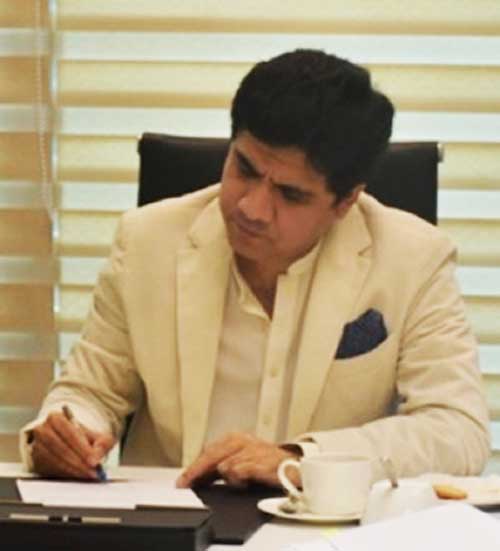The real impact will be felt by the people of this country, while the debate on whether or not inflation and foreign currency and debt pressure will continue and what impact it will have on aggregates such as exchange rates, growth, and solvency is important. The lower middle- and upper-income groups experience most of the impact. In order to help tackle their challenges, we need to start thinking more about what the state and society can do.
The number of people who have worked in the organizations I’m associated with or are beginning to ask for their assistance has increased significantly over the last few years. People with mid-level salaries are now beginning to ask for assistance to pay school fees, utility costs (especially when the amount increases unexpectedly and significantly, as it has been lately), health-related emergency bills, and occasionally even to close regular gaps between salaries and living expenses. In contrast, previously this was typically limited to those at the lowest rung of the salary scales.
Since they have my mobile phone, several riders who have recently brought food or other items to our home have afterward called to ask for assistance. It never ceases to amaze me. The individual in issue is not someone I know. He may have only recently delivered food or a package to our home, yet he still thinks he may ask for my assistance. On the one hand, it illustrates how desperate individuals feel. Despite working hard and doing so full-time or more, they are unable to support themselves and must turn to others for assistance. However, it does place the other team in a humiliating circumstance. Helping a few individuals a few times would be feasible, but since one does not know the person, it is hard to determine whose need is greater. As a result, this just causes great shame for both parties.
The problem is not only a rider concern. When you ride in a rickshaw or other kind of transportation, many of the drivers kindly ask for assistance. The attendant approaches you as you park your vehicle and requests assistance; when you enter a grocery shop, the sales staff requests assistance.
Finding money would not be a problem if the state prioritized aid for the poor. This is not the same as folks asking for assistance at traffic lights. We’re talking about folks who have full-time jobs and put forth a lot of effort. But they are now unable to survive. They are unable to live off of their current income due to inflation.
What sort of psychological and social consequences will this have? It is obvious that asking for financial assistance from someone they hardly know is not simple for most people. Many people express their embarrassment and denigration fairly overtly. However, they are compelled to inquire since they are at a loss for words. How might this avoid causing trauma?
Even for the ones asking, it is difficult. Saying no is difficult. When you are aware that the needs of the populace are very real and that inflation has made life quite difficult for the majority of them, it is tougher to say no. However, it is also impractical to be of assistance to everyone. This will also have social and psychological effects on us.
We need to significantly boost the funding that is allotted for social safety programs at the state level. Given inflation, every grantee should receive significantly more. But we also need to make the programs and the internet available to more people, if not more people. We need to add unemployment insurance to protect people who are losing jobs in these times or are entering the workforce and are unable to find jobs; we need to add income supplement programs for those who may be employed full-time and more, but whose income is still beneath some threshold; and we need to expand programs for schooling and health coverage because people have a tendency to cut back on educational and health expenses if times get tough.
Punjab’s minimum monthly salary is Rs.32,000. Many individuals work below this level, particularly in the commercial sector. Even though Rs.32,000 may not be a living wage, it may be the minimum amount needed to support the working poor.
Where the money for further help comes from is the crucial topic in such conversations given the government’s budgetary limitations. The government lacks the funds, and as a result, programs for the poor won’t be enlarged or multiplied, which is the most plausible explanation. But the truth is not what you think. We are aware that we heavily subsidize the wealthy in general and special interest groups. Finding money wouldn’t be a problem if the state was genuinely serious about doing it and if its top goal was providing aid to the poor. Sadly, the state does not view it as a top priority.
Could society organize itself to support the financially vulnerable more effectively so that the necessity for individualized appeals – which is difficult for both parties to bear – is not required? Each person contributes significantly. However, this attempt is chaotic, and many people still need help. Can we improve upon this? Before something like that can be organized, we need local and national organizations that the public can trust. Since we are still a long way from there, it is impossible to make these rapidly.
Indeed, these are trying times. There are just too many wounded individuals. This will not only have an adverse economic impact but also a negative social and psychological impact. The state continues to withhold assistance from the populace. It is not given enough importance. There doesn’t appear to be anything that will shift this state in the right direction, short of widespread rebellion. However, it is hard to forecast general discontent and its tremendous cost.
Society is not structured enough to effectively manage relief and assistance. It doesn’t appear to be a favorable scenario. The pressure will continue to build for some time because the economic situation won’t rapidly change.
Inflation and the lack of hope




